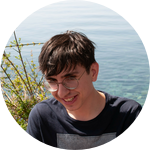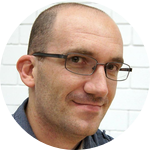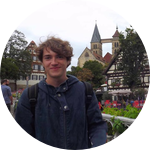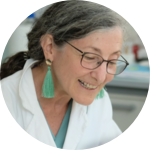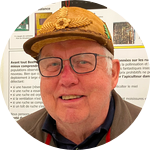About This Project
Of the millions of fungal species, less than 150,000 are known. At our community lab, Hackuarium, we have already used DNA sequencing analyses in several projects (eg. BeerDeCoded, OpenFoodRepo DNA) and have begun to apply these methods to investigate fungal biodiversity. Now, with our mushroom expert, Yngvar, we propose further metagenomic analyses, and to also explore mycelial feeding to honey bees in the context of another lab project, BeeMoS, to possibly protect them from pathogens.
Ask the Scientists
Join The DiscussionWhat is the context of this research?
Mushrooms are only the fruiting bodies of mycelia. Mycelia on the other hand are essential for global biodiversity, and necessary for plants and insects to survive, by providing nutrients and essential compounds. Results showing bees protected by mushroom extracts inspire us.
In academia, the main research on fungi is limited to ones responsible for diseases in humans, animals, and plants. Industry is interested in and funding this research in order to produce medicines and fungicides. Unfortunately, these can harm fungal biodiversity, similar to insecticide effects on the biodiversity of insects. This is not desirable.
Open participatory research is one way to focus science upon problems that need to be solved, rather than the profits that might be made.
What is the significance of this project?
It has been known for some time that high fungal biodiversity is associated with more resilience in ecosystems.
To determine species of a fungus can be time consuming, however. To acquire knowledge by attending courses given by mycological societies, or from very expensive books (e.g. the Atlas des Cortinaires costs more than $2'000), depending upon your preference, is necessary. For classical species determination, access not only to specimens, but to a microscope and tissue staining chemicals is crucial.
DNA sequencing does not make up for such understanding, but can quickly complement classic methods. Using single sample methods (cultivating mycelia and amplifying DNA) we can ID species. Metagenomic flow sequencing, as proposed, IDs many species in a population.
What are the goals of the project?
We plan to investigate mycelial biodiversity as a participatory research project, and share methods to grow, identify and feed mycelia to bees. With an expert mycologist, we will extend our initial single ID methods to again pursue MinION sequencing and determine the overall fungal diversity of samples. These will be obtained from other expert colleagues, initially, but ultimately are for anyone to contribute. We will also cultivate mycelia of polypores (and other control mushrooms, i.e. shiitake) to make inserts for BeeMoS hives, and follow the effects on the bees' health. The long term aim is open science investigations to help our world.
This proposal aims to not only extend projects at Hackuarium, but build knowledge and international collaborations of participatory research.
Budget
Although Sanger sequencing from single fresh mushroom samples is simple and not expensive, costs add up quickly. Dry samples are a further challenge. Clean purification of sample templates, with spin columns, at least, and primers and amplification with a high fidelity polymerase, are all necessary costs. The kits to make the bar-coded libraries to sequence many fungal targets at once, critical for proposed overall biodiversity analyses, are also essential.
Fortunately, we already can cover some of this budget. In particular, the MinION Dongle used for DNA Sequencing has to be hooked up to a powerful computer capable of handling and processing the data (1TB disc, CUDA computing cores ), which will be furnished privately by Hackuarium members.
Culturing mycelia is already successfully implemented in the lab and inexpensive, but the polypore described must still be tested, and several workshops for the general public and beekeepers are projected.
Endorsed by
 Project Timeline
Project Timeline
This project is ongoing and dependent on lining up all tools.
The MinION metagenomic analyses will be initially on 4 samples (2 from biodiverse regions and 2 from less diverse places).
The mycelia cultivation can be slow (from our experience with shiitake), but once things are growing well, amazing production can occur. We will aim to grow at least 3 different mycelial species to provide as food sources to bees.
The BeeMoS integration will follow. (probably not until early summer)
Feb 08, 2023
Project Launched
Apr 22, 2023
Kickoff Workshop on Mushroom Cultivation
Jul 16, 2023
BeeMoS Preparation Workshop
Sep 09, 2023
Metagenomics Workshop with the MinION
Meet the Team
Affiliates
Affiliates
Team Bio
Yngvar Cramer is the mushroom expert who greatly inspired us to put this project together. Our Hackuarium members include people with bioinformatics expertise for the metagenomic analyses and beehive use expertise and contacts.
Hackuarium members and their projects drive our Swiss public service laboratory association. Many of them and also members of the general public, we hope, will join in our 'team' in the course of this project.
Rachel Aronoff
Biologist: Broad international experience in basic research, in particular molecular biology. Expert at imaging, viral vectors, transgenic animals (from worms to mice) and genetics. Promotes open science and interdisciplinary participatory research.
Genomic integrity is a big picture concept for public health efforts, which basically includes all the dynamic molecular genetic details of cells. Rachel founded the non-profit, AGiR! Action for Genomic integrity through Research! in 2013, to provide information and promote research on its many aspects. Keen to aid efforts towards truly open science, she pursues research at the Swiss public laboratory association, Hackuarium, where she has been a member since 2015, on the board since 2017 and president since 2018.
She is one of many 'fascinated by fungi' and very glad to have Yngvar as a member of Hackuarium!
Yngvar Cramer
Chemist (PhD) with many hobbies (Mycology, Environment, Programming and using Microcontrollers, Internet of Things, setting up and maintaining internet pages, mending all sort of broken things at Repair Cafes...).
Interested in Mycology (OK Miller Jr. scholar, approved mushroom inspector and member/past president/expert of Swiss and European mycological societes)
Main ongoing projects at Hackuarium:
- Mushroom DNA sequencing as a citizen science project
- Growing mycelia and feeding them to bees
- Monitoring Bees (Monitoring Data from Beehives with the Internet of Things -> BeeMos)
- 3D printing, construction and programming the OpenFlexure microscope
Additional Information
Yngvar Cramer is the mushroom expert and Hackuarium member who is the lead on this project. Rachel Aronoff is the molecular microbiologist who loves life-long learning at Hackuarium (and the fact that shiitake mycelia has the great flavor of the mushrooms!).
One of the first Hackuarium projects was around biomaterials based on mycelia, and we are very excited to apply such work to this extension of the BeeMoS project and further participatory research to help the bees. (This direct link to the youtube video provides all our grateful acknowledgements for images etc that were not just from our work...) This will get you to the second video, put together as the last week of the campaign began...
This is the montage made for the top video linked above which originally 'headlined' this campaign, and this shows some individual mushroom sequence from some of our previous experiments, as to be described further in our wiki.
Basically, the order of the bases 'GATC' can even let us identify particular mushroom species. Our old Open Food Repo DNA project had a lot of background information, if you want to learn more about how the metagenomic sequencing is done to get sequences of many organisms in one sample, potentially from the presentation used for our first workshop (our second was the following fall, also pre-pandemic, but the third was cancelled due to the health crisis...) or, to really get down to details, in the protocol used for the sequencing during that workshop. (Thank you to all the partners at that time, and looking forward to more fun ahead!)
Here is one more montage for the project! Tell a friend!
Please contact us at hello(at)hackuarium(dot)ch if you have any questions or would like to get involved!
Project Backers
- 30Backers
- 102%Funded
- $10,293Total Donations
- $343.10Average Donation
